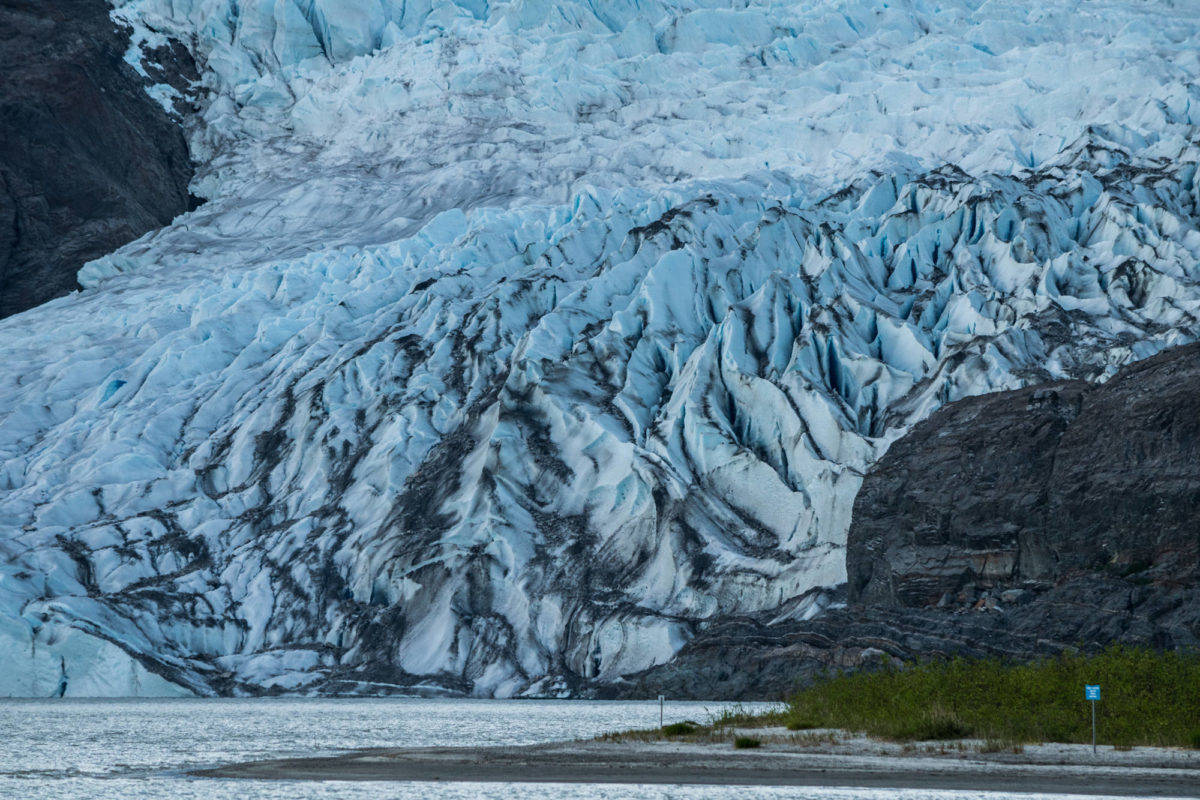It’s not just the climate that’s changing. It’s also the way scientists are describing that change. They are calling it a climate emergency. Many Alaskans will ask, “Is it? What kind of emergency?”
The answer is “Slow, then fast.” The slow part is already mostly behind us. Consider the Titanic 15 minutes before it hit the iceberg. Since nobody knew, there was no sense of emergency. Then suddenly they got to the fast part and it was too late to get a good outcome.
The build-up of greenhouse gases in the atmosphere has seemed slow and has accounted for about 1 degree Celsius of global increased temperature since the 1880s. But if you are 30 years old, you experienced half of that accumulation in your lifetime. You just didn’t know because you were subjected to a multi-decade, multi-million dollar effort funded by the fossil fuel companies to muddy the science and confuse the public. This campaign was executed by some of the same people who brought you the news that the science wasn’t settled on cigarettes causing cancer. Exxon scientists warned their company that their product would cause planetary warming. Exxon knew. You didn’t.
But now we know about the figurative “iceberg.” Climate scientists and newscasters are yelling in our ears about drought, flooding, heat waves and wildfires, icefield and permafrost melting, sea level rise and ocean acidification. In the last decade we watched as hurricanes, midwest floods and deadly wildfires became more frequent and powerful.
Here in Alaska, the fire season starts earlier, lasts longer, and big fire seasons are becoming more common. The Swan Lake fire made Kenai Peninsula air pollution among the worst in the world. Severe drought was declared for the first time in the Anchorage area. Drought persists in Southeast, and we are beginning to see wildfires in the rainforest, an ecosystem where fire has traditionally played no role. In 2019 in Alaska, birds, whales, seals and pre-spawned salmon experienced die-offs variously related to heat, starvation, or the increase in paralytic shellfish poisoning that occurs in warmer water.
What about the fast part? The fast part involves tipping points, a term that refers to how a small change suddenly causes a major system shift. For example, there is more carbon dioxide in our atmosphere now than at any time in the past 800,000 years, perhaps than in the past 15 million years. There was much less ice on the planet then due to the associated global warming. Sea levels were more than 100 feet higher than today. The Greenland ice sheet is melting seven times faster than in the 1990s. Have we passed a tipping point?
On Jan. 21, the first day of the legislative session, a group of Juneau residents will be in front of the Capitol building to welcome returning legislators with a banner proclaiming “It’s A CLIMATE EMERGENCY”.
Here are three important points we are making:
• Keep it in the ground! Scientists estimate that more than half the known reserves of fossil fuels must remain unburned if we are to have a chance at a livable planet. We don’t need extreme projects like drilling offshore in the Arctic or in the Arctic National Wildlife Refuge.
• Not a penny more for fossil fuel projects. The Alaska Permanent Fund and and state pension funds should divest from the fossil fuel sector which is destabilising the climate and losing us money at the same time.
• A rapid and just transition to renewable energy. We are asking our elected representatives to think beyond oil, to position us for the renewable economy of the future, to emphasize our economic strengths like fish, construction, tourism and health care, our global cargo center in Anchorage, and our global leadership position in microgrids for electricity in rural areas. A just transition means working with Alaska Native villages harmed by erosion from global warming. It also means working with oil field and refinery workers displaced by the change to renewable energy. It means building a society that will nourish our children, not destroy their future lives.
Watch for your friends and neighbors at noon, Jan. 21, the first day of session. You might want to join in!
• Mike Tobin is a retired emergency physician who lives in Juneau. He’s a Steering Committee member of 350 Juneau —Climate Action for Alaska. Columns, My Turns and Letters to the Editor represent the view of the author, not the view of the Juneau Empire.

